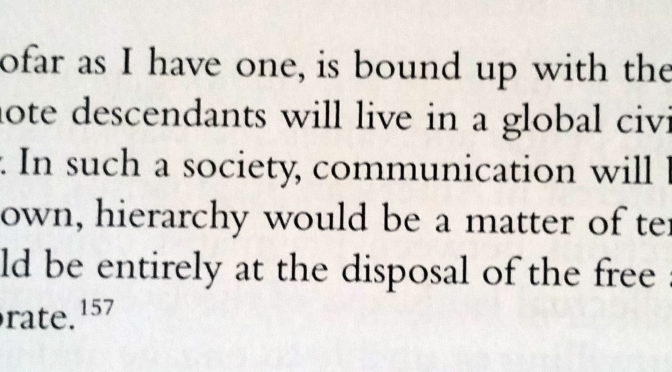Category: Books
-

The Rorty Reader
This is a review of The Rorty Reader. I came across Rorty when I was doing research on the subject of human rights. After reading four other books on the subject (Nussbaum, Sunstein, Bietz, Morsink) I came across a reference to Rorty’s “Human Rights, Rationality, and Sentimentality” Amnesty Lecture and read it. Overall the experience…
-
In Memoriam: Ursula K. Le Guin
Ursula K. Le Guin died this week, one of my favorite novelists. Her parents studied and worked extensively with the last member of the Yahi people, who occupied territory in the Sierra Nevada until they were massacred in the Gold Rush. I have never seen Le Guin say exactly how that influenced her, but a…
-
Book Review: For The Soul of France
Sometimes it feels like it is hard to write engaging history books for any era that predates the 20th century. There is less cultural context for the modern reader: so much has changed that it makes it hard to imagine events, nevermind relate to them. Plus more details have been erased by the sands of…
-
Book Review: The Unwinding by George Packer
Something changed in America around 1970. If you read political economists, it might be variously characterized as the end of the New Deal, globalization, national productivity separating from average pay, deindustrialization, the beginning of the income inequality spike, or the rise of neoliberalism. Those are hard to digest in the abstract. Packer tells the story…
-
Book Review: Sebastian Junger’s “Tribe”
“Tribe”. Going in I found that title off-putting, especially coming from a journalist best known for his reporting of the society of the military: offhand the word “tribe” conjures for me ideas of race, segregation, warfare, and social superiority of a martial class of warriors. This book is (for the most part) not really about…
-
My Resistance Era Reading List
A couple of friends have posted to Facebook asking “What are some good books for understanding the current situation”? I’ve been on something of a reading frenzy in the last six months on that topic, and here are my favorite books, essays, publications, and a couple of videos and graphics. In the ongoing torrent of news…
-

Gutenovox, a Mashup of Gutenberg and LibriVox Catalogs
I recently did my first recording for LibriVox, which is a site where volunteers read public domain works. I wanted to contribute to a short science fiction collection, and it was challenging to find a work that hadn’t been read already — not because there aren’t any, but because it involves looking through lists of…
-
The Last Lion, by William Manchester
I’ve been really enjoying this book. This is Doris Kearns Goodwin-style biography. It is detailed, written like a novel, and hard to put down. Maybe even more than Goodwin, Manchester used this three-volume biography as a way to show an epic arc of history, from the apex of British Empire and its wane and climax…
You must be logged in to post a comment.